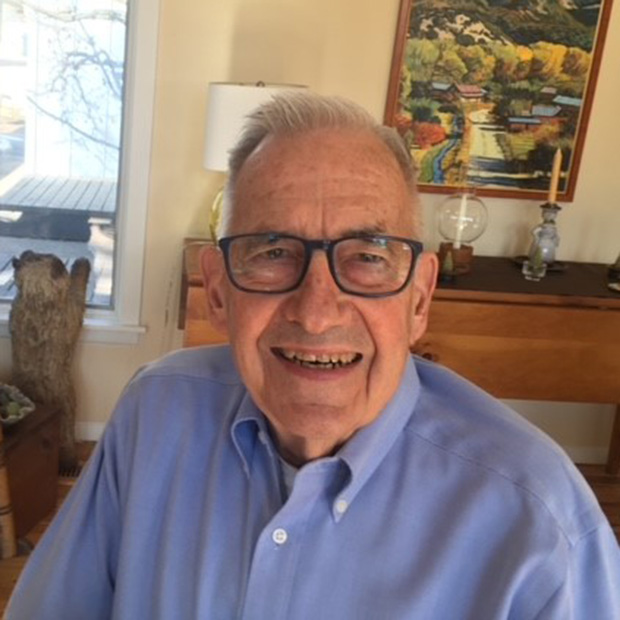Where every professor knows your name
Feb. 24, 2021 — Bob Richburg ’61 knew he wanted to become a teacher as early as the fourth grade, but it was Grinnell College history classes that shaped the personal nature of his teaching philosophy.
Richburg, an emeritus professor of teacher education and staff development at Colorado State University, attended a large high school in Chicago where many of his teachers never bothered to learn his name or get to know him. It was hurtful, he says.
 Bob Richburg ’61
Bob Richburg ’61
“Then I came to Grinnell and Joseph Wall ’41, Dr. [Richard] Westfall, Dr. [Homer] Norton and others made a point that they knew your name and knew as much as they could learn about you within a week,” Richburg says. “I learned so much from them in terms of both content and the way a teacher can develop interpersonal relationships with students. Students wanted to please the professors, so we studied in part to not disappoint them.”
Richburg has contributed to Grinnell’s Pioneer Fund every year since 1996. Additionally, he recently set up a planned gift to create the Robert ’61 and Frances Richburg Endowed Scholarship for Teachers. The scholarships will primarily assist Grinnell’s students in their practice teaching semester. Most education students graduate at the end of their eighth semester and then stay on in the following fall to complete student teaching. A lack of financial resources can prohibit students from completing the ninth semester.
“Students that support themselves in school through working often cannot continue to do that while they are student teaching,” Richburg says. “It seemed like a good idea to make this money available for scholarships for finishing up their program at Grinnell to become teachers.”
Richburg had been considering for a while how Grinnell fit into his plans. At age 82, the pandemic spurred him to put together a new will.
“Getting my affairs in order is a positive thing,” he says. “I’ve had to think carefully about when my time comes, and I want to have things I worked hard for used in a very special way.”
After graduating from Grinnell, Richburg went to graduate school and then to Nigeria with the Peace Corps. There he taught at a new school with few resources.
“It was challenging work but when you can really tell that you are making a difference, it makes you feel good about what you are doing,” he says. “After Grinnell, I always wanted to make a difference. Grinnell led me and many others in my class into the helping professions. In some ways, we have become a nation of cynics. The last few years haven’t helped. But I love that even today students coming out of a school like Grinnell want to be optimistic, pay it ahead, and make something good happen while they are on this planet.”
Upon returning to the U.S., Richburg taught American history at the high school level in Louisville, Kentucky. Then he completed his doctorate and began a 44-year teaching career at Colorado State preparing future generations of teachers. By the end of the first week of each semester Richburg had memorized the names of every student in each class he taught.
He and his wife, Fran, frequently invited classes over to their home. This served as another opportunity to get to know students on a personal level.
“Every faculty member has other priorities as well as teaching,” Richburg says. “However, if they are serious about wanting their students to the most proficient learners, you build relationship first. That’s my principle from Grinnell.”
That principle figured heavily when Richburg created Project Promise in 1989. The graduate level program provided four student teaching experiences.
“We tried to do teacher preparation in a different way, taking advantage of research about the best ways to work with people who are going to be teachers,” Richburg says. “We had them teaching within two weeks of entering the program. Eventually, they taught in a rural school and in a school in downtown Denver and then had two longer experiences at the junior high and senior high level. In each case, they worked to build relationships quickly.”
Project Promise trained 265 teachers during the 17 years the program ran. It won a national award and many of the educators involved have won awards for their own teaching, Richburg says.
Richburg also has been an advocate for higher education funding for teaching preparation. He said too often college administrators think they can bunch education students in large classes and have them still come out as effective teachers.
“It doesn’t work that way,” he says. “Colleges need to make teacher preparation a high priority. It’s a tremendously important way to invest in the future.”
—by Jeremy Shapiro